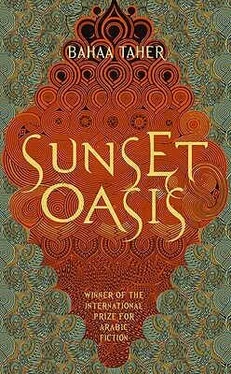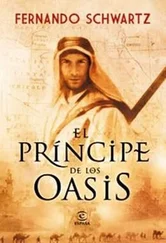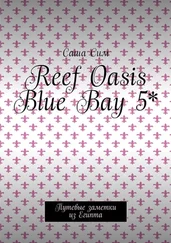Bahaa Taher - Sunset Oasis
Здесь есть возможность читать онлайн «Bahaa Taher - Sunset Oasis» весь текст электронной книги совершенно бесплатно (целиком полную версию без сокращений). В некоторых случаях можно слушать аудио, скачать через торрент в формате fb2 и присутствует краткое содержание. Год выпуска: 2009, Издательство: Sceptre, Жанр: Современная проза, на английском языке. Описание произведения, (предисловие) а так же отзывы посетителей доступны на портале библиотеки ЛибКат.
- Название:Sunset Oasis
- Автор:
- Издательство:Sceptre
- Жанр:
- Год:2009
- ISBN:нет данных
- Рейтинг книги:3 / 5. Голосов: 1
-
Избранное:Добавить в избранное
- Отзывы:
-
Ваша оценка:
- 60
- 1
- 2
- 3
- 4
- 5
Sunset Oasis: краткое содержание, описание и аннотация
Предлагаем к чтению аннотацию, описание, краткое содержание или предисловие (зависит от того, что написал сам автор книги «Sunset Oasis»). Если вы не нашли необходимую информацию о книге — напишите в комментариях, мы постараемся отыскать её.
Sunset Oasis — читать онлайн бесплатно полную книгу (весь текст) целиком
Ниже представлен текст книги, разбитый по страницам. Система сохранения места последней прочитанной страницы, позволяет с удобством читать онлайн бесплатно книгу «Sunset Oasis», без необходимости каждый раз заново искать на чём Вы остановились. Поставьте закладку, и сможете в любой момент перейти на страницу, на которой закончили чтение.
Интервал:
Закладка:
Finally, Amun revealed what he wanted me to hear, and left it to me to understand.
I left the temple once more in the company of the priest and he raised his hands for all to be silent. I was afraid lest he proclaim something of what the oracle had said before the crowds, but he contented himself with saying that the gods had chosen me as Pharaoh of Egypt and that their god Horus was incarnate in my body from that moment. The second he announced this, the throngs of priests and priestesses, and the Egyptian pilgrims, started cheering and waving with convulsive enthusiasm as they exclaimed the name of the new pharaoh, the voices of the men and women tremulous with tears of joy.
My companions and soldiers gathered around me, their eyes enquiring as to what had taken place at my encounter with the god, but I contented myself with a smile. Philotas, however, that brave warrior and my close friend, asked me in something like reproach, 'So you're a god, then?', and when he failed to hear a reply from me he muttered, as he looked sadly around, 'We were happy for a mere hero to lead us to victory.'
I understood the import of his words, even if the unceasing roaring by the crowds of the beloved name of pharaoh, of my name, of Alexander, God-Pharaoh of Egypt, drowned them, and I asked myself at that instant what the Greeks had done with that freedom of which they were so proud. They would never have stopped dividing and fighting until their cities had destroyed each other, had not my father, Philip, united them at the last by the sword under the rule of Macedonia. Here, on the other hand, were the Egyptians, whose state had lasted undisturbed for thousands of years under the authority of their divinities, pharaohs and priests by virtue of that tyranny the Greeks hated. Why, then, should I not take my lessons from Egypt? And why should I not try to combine them with those of Aristotle?
As I pondered, I was gazing at Hephaestion, my dearest friend. I saw neither reproach nor doubt in his limpid eyes. He believed. Then I removed my glance to the angry Philotas. It didn't matter. I would kill him later.
Later on, I told everyone I would never reveal anything of what happened between Amun and me in the Holy of Holies except to my mother Olympias when I met her. My life came to an end, however, before we could meet again, and the secret of that encounter died with me.
And you, woman, who calls to me and disturbs my spirit, do you wish me to reveal the secret to you now?
As though you were Olympias!
The visit to Amun provided me for a period with the inner peace that I had spent my whole life looking for, torn as I was between the severity of my father Philip, the ecstatic visions of my mother and the wisdom of Aristotle. I had found this peace in war, and had chased the Persians from Anatolia, Syria, Palestine and Egypt. I had defeated their king Darius in every battle he had waged against me. After my encounter with Amun, however, I did not continue the war with the Persians as enemies whom I wished to rival in the occupation of lands. No, I waged war now as a god of justice, which I was to spread throughout the universe. It was not just another battle, as their poor king thought, but a war to the end, a war to end all wars, a war of good versus evil, that peace might reign upon Earth for ever.
Darius prepared himself well during my stay in Egypt. From what was left of his empire he gathered an army that outnumbered mine ten times over. He didn't understand that numbers mean nothing, or the lesson I had learnt from my father Philip — that you may rule men by repression and fear, but the fearful can never be victorious in war; on the field of battle they must be free men, they must conquer their fear by their own will and not by order of their commanders. I learnt that bravery is not an instinct; rather it is precisely the conquest of the fear that lurks in every soul. So I made myself the example for my soldiers. I didn't issue orders, but would stand at the forefront in every battle, brandishing my sword, thrusting and being thrust at, the blood running from every limb, but confident of victory. The boldness, the thrusting and the blood infected my troops and they would charge behind me, to victory or to death, it mattered not. I knew how to inspire the troops so that they became drunk on the ecstasy of war and forgot themselves, and that is how I made an army out of them. Darius was never able to do such a thing. And this even though in peace I ruled them with a fist of iron harder than his own, the fist of a god-pharaoh.
Again I defeated him in two great battles and his troops fled, with him in their footsteps. He sent envoys with offers to divide the world between us and give me anything I wanted of the heaped treasures and wealth of his empire, but why should I accept half the world when I was certain that I held it whole in my right hand? And how could his wealth, which was destined anyway to be spoils for me to distribute to my soldiers, tempt me? His offer to wed me to his daughter made me laugh too — she who had been a captive in my camp along with her mother and the women of his family since my first battle with him. I replied to his offer by setting the captives free, including his mother, and I entertained them as honoured guests in a palace of his that I had taken on my march. Nevertheless, he failed to understand my message and waited for me again with a huge army at the capital of his ruined kingdom, Persepolis, glory of the empire, home of the throne of the King of Kings and his sceptre. For the third and last time he was defeated and fled in search of a new army, though I knew, as did my troops, that this was the end of the war with the Persians and the end of their state.
It was only justice, after this, that I should destroy his capital, burning it to the ground. Had not the Persians burnt beautiful Athens, the pearl of the Greeks, two centuries before? I paid no attention to the counsels of my troops and courtiers who opposed the destruction of Persepolis. They asked me why I had made pacts with the other Persian cities that I had taken, restored their temples, and won over the hearts of their inhabitants, and why I wanted to destroy the capital, whose palaces and wealth had become my possession. I let them talk and then lifted a brand, which I threw at the palace of the King of Kings, signalled to my troops to do the same, and the fires blazed in the palace until it became a ball of smoke and flame. Then why not another offering? Why not the whole city as a flaming offering?
This was not the justice of a god but the revenge of a man possessed by hatred. The crackling and hissing of the fires filled me with an intoxication like that of wine and I became afraid of myself. Yet again I asked, 'Who can I really be? Who am I?' And there was a question I would ask many times from then on: 'Why do I do the thing and its opposite?'
After Persepolis, however, I destroyed no more cities. Rather, I built new ones, more Alexandrias. I pardoned the commanders in the lands I had liberated and made them rulers of provinces of my Macedonian empire. I reconciled their hearts and restored the temples of their gods, though I also erected temples to a new god whom they had to come to know well and to whom they had to make offerings too. His name was 'the God Alexander, son of Amun'.
I paid no attention to the restlessness of my Greek and Macedonian troops. They too had to worship the god who had led them to a victory no man before had achieved and of which no man thereafter could ever dream. Who but a god could have achieved such conquests?
The Earth was at my feet. I annexed to Macedonia all the empire of the Persians, then set off with my army and conquered all the lands to the east. I swept through valleys and deserts and passed across the rugged mountains that had defeated all who had tried to cross them until I reached the continent of India itself, and I subdued it. I conquered Asia up to its farthest shores and seas and I made good the prophecy of Olympias and Amun concerning me that I should be victorious wherever I set foot. Then it was left to me to go back, having conquered the East, and conquer the West.
Читать дальшеИнтервал:
Закладка:
Похожие книги на «Sunset Oasis»
Представляем Вашему вниманию похожие книги на «Sunset Oasis» списком для выбора. Мы отобрали схожую по названию и смыслу литературу в надежде предоставить читателям больше вариантов отыскать новые, интересные, ещё непрочитанные произведения.
Обсуждение, отзывы о книге «Sunset Oasis» и просто собственные мнения читателей. Оставьте ваши комментарии, напишите, что Вы думаете о произведении, его смысле или главных героях. Укажите что конкретно понравилось, а что нет, и почему Вы так считаете.












